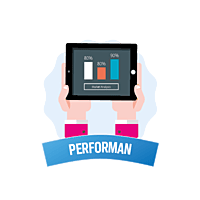We are
a boutique company for improving employee engagement. Critical thinking is the core of our philosophy, thus we carefully improve our solutions with the latest behavioural- and neuroscience research findings to deliver measurable result. With the support of GALLUP, we provide proven solutions to Team Leaders and Managers that enable them to reach excellence and sustainable performance in their leadership practices.
Behavioural Change Programs
Strengths-based Programs
We build our programs on Gallup’s strengths approach that helps identify and develop individuals’ natural talents—patterns of thinking, feeling, and behaving that can be productively applied at the workplace. Through the CliftonStrengths® assessment, people discover their top strengths across 34 themes, which serve as a foundation for personal growth, team collaboration, and leadership effectiveness. By focusing on what’s right with people rather than fixing weaknesses, organizations see higher engagement, performance, and retention
for Managers
for Sales
The program transforms sales performance by helping professionals discover and apply their innate talents in each stage of the sales cycle - from prospecting to closing. The program focuses on amplifying what salespeople naturally do best, leading to higher motivation, better customer relationships, and improved outcomes.
for Employees
Clients trust us
to support their managers



















































































